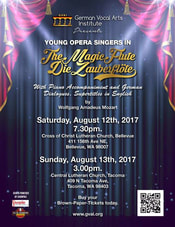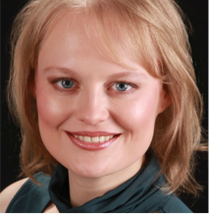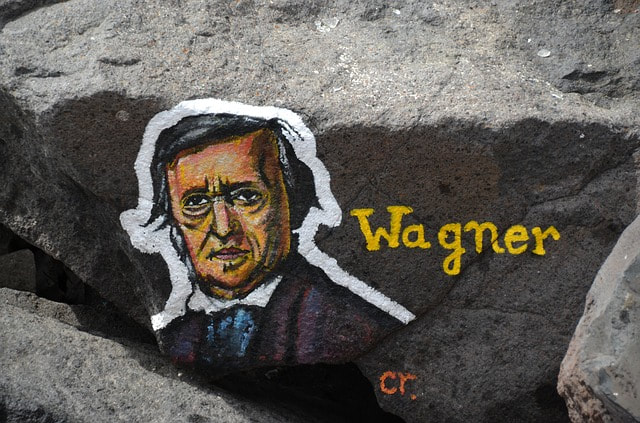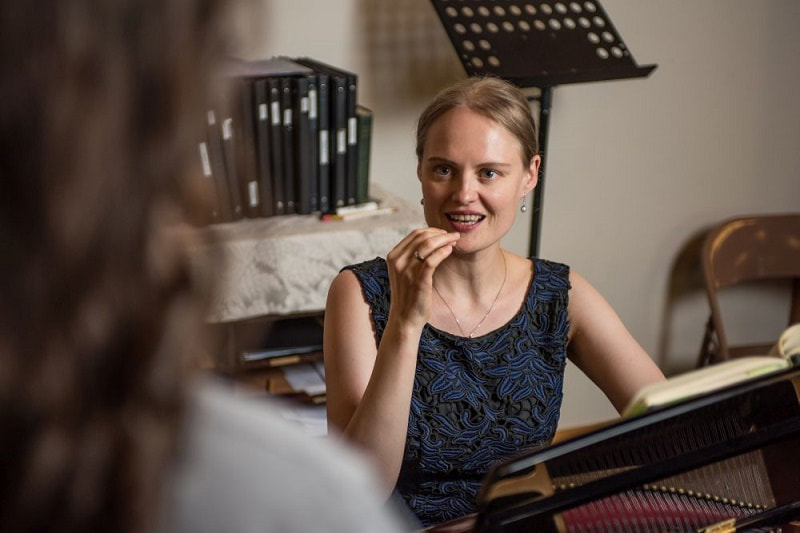|
For When One Wagner Opera isn’t Enough Next week, the Bayreuth Festival will start and run through the end of August. The program consists entirely of operas written by Richard Wagner. No, it only takes a month to get through them all, not a full year! Believe it or not, the idea of a festival of only Wagner operas was the conception of Wagner himself! Okay… I guess that is pretty believable. Always in a financial crisis, the festival was a means for Wagner to pay debts and remain financially independent. Once Wagner had chosen Bayreuth as the location for his festival, he discovered that the existing theatre in Bayreuth was not equipped to handle the grandiose staging and orchestrations of his operas. Hence, he set out to fundraise to build a grand opera house worthy of his works. The architecture of the Bayreuth theatre is part of what makes this festival so special. It was built with the ideals of Greek democracy in mind. Every seat has a direct, uninterrupted view of the stage. Also in line with ancient Greek amphitheaters, the orchestra pit is buried beneath the auditorium and extends all the way to the back of the stage. A soundboard above the conductor directs the instrumental sound to the stage, where it perfectly blends with the singers’ voices. Additionally, it happens to be the largest freestanding timber structure ever constructed. If you want to get an impression have a look at this video. The quality is not the best, but it gives you a chance to look in the hall and orchestra pit. In 1876, the Bayreuth Festival opened with a performance of Das Rheingold. Looking at the guest list, it was truly the party of the century. In attendance were notable historical figures like Kaiser Wilhelm, Dom Pedro II of Brazil, King Ludwig, and Friedrich Nietzsche, as well as composers like Anton Bruckner, Edvard Grieg, Pyotr Tchaikovsky, and Franz Liszt. Despite the VIP guest list, the event was a financial disaster and it took years for the festival to make any profit. When Wagner passed away, his wife and family continued to operate the festival, ensuring that none of Wagner’s lengthy music was cut or altered. Well, at least it remained unchanged until WWII. During the war, the Nazi Party was given control over the festival and it decided to break from the original 19th century sets used in Wagner’s time for a more minimalist look. After the war, the festival was put on hiatus until the town of Bayreuth was repaired and restored from damage by ally bombs. The festival was reopened in 1951. Changes to the festival productions remain highly controversial. Many traditionalists view any changes to the shows as acting against the ultimate musical master, Wagner. Others view minimalist and modern productions as refreshing and as being more universally appreciated. You can’t win ‘em all! In the 1970’s, Wolfgang Wagner and the festival board implemented Werkstatt Bayreuth, or Bayreuth Workshop. It created a rotation of directors for the festival productions. This new set-up allowed for directors to experiment with creating unique and modern stagings of Wagner’s operas. Among those invited to direct was Ingmar Bergman, who graciously declined [insert tears of disappointment]. Good news! The Bayreuth Festival is still going strong today! Bad news… it’s going a little too strong if you want to see it anytime soon. The waiting period varies between five to ten years... And you thought scoring Hamilton tickets was hard! To have a shot at attending, you must submit a new application every year. (If you miss a year, you get put again to the back of the line.) Then, tickets are chosen by a lottery. This year’s opera schedule includes The Ring Cycle, Die Meistersinger von Nürnberg, Tristan und Isolde, and Parsifal. If you want to attend the Bayreuth Festival, share this blog with your friends! Oh, and start applying for your tickets here ASAP: http://www.bayreuther-festspiele.de/english/how_to_order_202.html. May the odds be ever in your favor!  Meanwhile, if you are in the Greater Seattle area or plan a visit, come and enjoy the singers of our Summer Opera Program in our semi-staged production of Mozart's The Magic Flute. If you prefer art song, we have you covered as well. A Midsummer night's music - An enchanting evening of German art song, operetta and opera.
0 Comments
Your comment will be posted after it is approved.
Leave a Reply. |
Blog Categories
All
Personalized diction, voice & performance training, singing lessons online or in person

Most blog posts from June 2017 - June 2018 were written by GVAI's blogger Anikka Abbott who has just started her journalism studies. We already miss her. Learn more about her here or connect with her on Facebook.

Meet ChristineHello, I am Christine, the director of GVAI, a passionate singer, German diction, voice and performance coach. I love music, singing and dancing. Life is an exciting journey and I invite you to walk with me.... |
© COPYRIGHT German Vocal Arts Institute/ Meister Performances LLC 2021 ALL RIGHTS RESERVED
Terms of Service, Privacy and Cookie Policy.
Terms of Service, Privacy and Cookie Policy.



 RSS Feed
RSS Feed